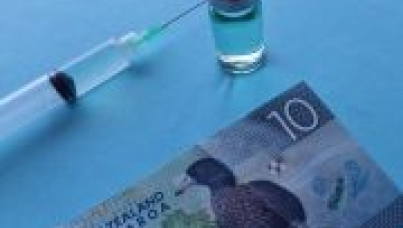A survey in eight countries about HPV reveals over a quarter of surveyed parents from across Europe are unaware of HPV
61% of parents surveyed agree they feel more knowledgeable about vaccinations for their child following the COVID-19 pandemic.
43% agree they are overwhelmed by the amount of information regarding vaccinations available due to COVID-19.
1 in 5 parents surveyed who are aware of HPV are not aware that HPV can cause cancer.
Technical note:
On behalf of MSD, Ipsos conducted an online survey amongst a representative sample of 7,111 parents in Germany (n=1,270), France (n=1,334), Italy (n=1,132), Austria (n=600), Portugal (n=680), Romania (n=388), Sweden (n=1,332) and Slovenia (n=375). All participants had children aged under 21 years of age, were either the sole or joint decision maker regarding their child’s vaccine decisions, and were able to take part in an online survey. Fieldwork took place between 28 March and 7 April 2022.
Full results:
HPV and cancer
- More than 1 in 2 (58%) parents are aware of vaccinations that may help to prevent some types of cancers, decreasing to 38% for cervical cancer specifically – however much lower for all other cancer types
- 3 in 4 parents are aware of HPV (73%), however only 1 in 2 who are aware of HPV (55%) feel knowledgeable about it.
- Of those aware of HPV, most know that it can cause cancer (79%), but fewer agree this can cause cancer in both males and females (48%).
- The majority of parents who are aware of HPV agree that prevention is the best form of protection for their child (89%), and feel confident about protecting their child against HPV (80%).
- Intent to vaccinate their child against HPV (28%) is highest compared to the other conditions surveyed (Influenza 20%, COVID-19 19%, Pneumonia 18%, Measles, Mumps, Hepatitis B 17%, Hepatitis A 17%, Shingles/ Chicken Pox 15%, Rotavirus 15%, Tetanus 12%, Diphtheria 12%, Meningitis 12%, Whooping Cough (Pertussis) 11%, Rubella 7%), reflecting the older recommended age of vaccination.
Speaking at the event to launch the research, DR. Xavier Bosch, Catalan Institute of Oncology said: "The research shows positive insights into the increased awareness levels of HPV among parents across Europe. However, there is still more work to be done to reprioritise the general immunisation and screening programmes, along with further efforts to prevent the spread of HPV and potential growth in the prevalence of cancer-causing HPV. At this critical time, we must now be more vigilant about the health of our populations and ensure that routine health screenings and vaccinations get back on track, which we’re all aware have been impacted due to the COVID-19 pandemic."
Impact of COVID-19 on vaccine perceptions
- 90% of parents believe it is important for their child to be vaccinated against conditions other than COVID-19.
- The main reasons they cite are that they feel vaccinations are necessary to prevent certain diseases (64%); vaccinations are the only way to stop the spread of certain diseases (55%); and they are always proactive about preventative health for their children (42%)
- COVID-19 has impacted perceptions of vaccines in some way for 4 in 5 (79%) parents:
- 68% agree that they are now more likely to ensure their child has a vaccination for conditions other than COVID-19
- 68% agree that they now feel their child being vaccinated for conditions other than COVID-19 is more important
- 65% agree that they are more likely to proactively ask a doctor about vaccines for diseases other than COVID-19 for their child
- Although 3 in 5 (61%) parents agree they feel more knowledgeable about vaccinations for their child due to COVID-19, 1 in 2 (49%) agree there is too much information regarding vaccinations available now due to COVID-19, and 2 in 5 (43%) agree that they are “overwhelmed” by the information available regarding vaccines
Responding to the results, Esra Urkmez, Patient Advocacy & Awareness Fundraising Director, ENGAGe, said: "First and foremost, as a mother, I know that all parents simply want ‘what is best for their children’. No parent wants to see their child become unwell or develop any kind of illness which might prevent them from being the best version of themselves later in life. That is why it is so important for us to do our own research, and that we get the correct information we need to help us make informed and empowered decisions relating to the health of our loved ones and the prevention of certain diseases and cancers. However, over the last two years, it has become increasingly more difficult for parents to navigate vast, and complex amounts of information relating to vaccines because of the COVID-19 pandemic. Also, it is no longer straightforward for parents when it comes to who they should trust."
"Parents must continue to use reliable sources such as the World Health Organisation (WHO) when researching information relating to health and the prevention of cancers and disease, while also proactively discussing with their healthcare professional. It is important that parents feel assured and knowledgeable that something like the HPV vaccine is not new (like the COVID-19 vaccine), has been around for a lot longer, and has been comprehensively studied and researched. So too has the HPV virus itself, and certain cancers can be prevented later in life by simply acting now on behalf of our children. If anyone is unsure, they should simply speak with their healthcare professional to get more information on how they can prevent certain cancers, in men and women."
About HPV:
HPV (human papillomavirus) is a family of very common and highly contagious viruses(i). HPV is transmitted through any kind of sexual contact(i). HPV is so common that almost all sexually active men and women will contract HPV at some point in their lives(i).
HPV is responsible for several cancers in both men and women(i). It also causes a substantial number of cancers in the vagina, vulva, and anus, as well as genital warts(i).
Usually, HPV infection clears up by itself, but if not, it can manifest itself as certain HPV-related cancers later in life(i).
Only cervical cancer can be detected early in a screening test(i). The other cancers caused by HPV may not be detected until they are more serious(i). HPV vaccination prevents infections that cause these cancers(i).
(i)Cervical Cancer: Key Facts, by World Health Organisation - https://www.who.int/news-room/fact-sheets/detail/cervical-cancer






